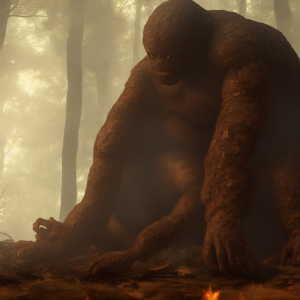 There are not many books for children in which death is the main topic. Marjorie Kinnan Rawlings’ 1938 novel The Yearling, which dealt with death from a child’s point of view, comes to mind, but it was not conceived by it’s author as a “children’s book.” It is today generally shelved with “young adult” fiction in libraries, but that was not a category in use at the time of its writing. The author was addressing adults in a story written from the point of view of a child. Its clarity and emotional intensity allowed it to reach a younger audience. We expect a teenager to have some concern with the idea of death.
There are not many books for children in which death is the main topic. Marjorie Kinnan Rawlings’ 1938 novel The Yearling, which dealt with death from a child’s point of view, comes to mind, but it was not conceived by it’s author as a “children’s book.” It is today generally shelved with “young adult” fiction in libraries, but that was not a category in use at the time of its writing. The author was addressing adults in a story written from the point of view of a child. Its clarity and emotional intensity allowed it to reach a younger audience. We expect a teenager to have some concern with the idea of death.
But when it comes to books for younger children, death is still a taboo topic. It is something that, many believe, children should not be exposed to in fiction, or even allowed to think about. This presumes that no small child will encounter death, or have to think of it, or need to understand it. Except, of course, the children in Uvalde, Texas, and Sandy Hook, Connecticut. Except, of course, the millions of small children who have had to experience a death in the family, or even the death of a beloved pet. And that doesn’t even take into account parts of the world torn up by war, where small children are drenched in the stench of death. There aren’t many children in Ukraine or Yemen, today, who are oblivious to death. Religion is of little help, here. It is far more concerned with denying death than with understanding it, or preparing for it. At its worst, it attempts to dismiss life as a mere prelude to an imagined eternal existence … at once obliterating death from thought and obliterating life from significance.
So I would recommend Matti Charlton’s You’re Mine. I wish I had such a book available to me when I was very young. In very straightforward language, it explains death, how it is inevitable, and why its existence underlies the preciousness of life: “Be grateful for your life. Every day. Every second. Cherish every moment while your life is still yours.” The narrator is death itself, portrayed as a monstrous beast, speaking to the reader, “Little One.” While the artwork of the book is designed to be just scary enough for a child to handle, it also evokes the beauty of life in a way that a child can understand. It is refreshingly free of evasion, deceit, or existentialist blarney. Many adults would benefit from reading it, since, as the author says in a postscript: “..we are all Little Ones, after all.”
Comments are closed.